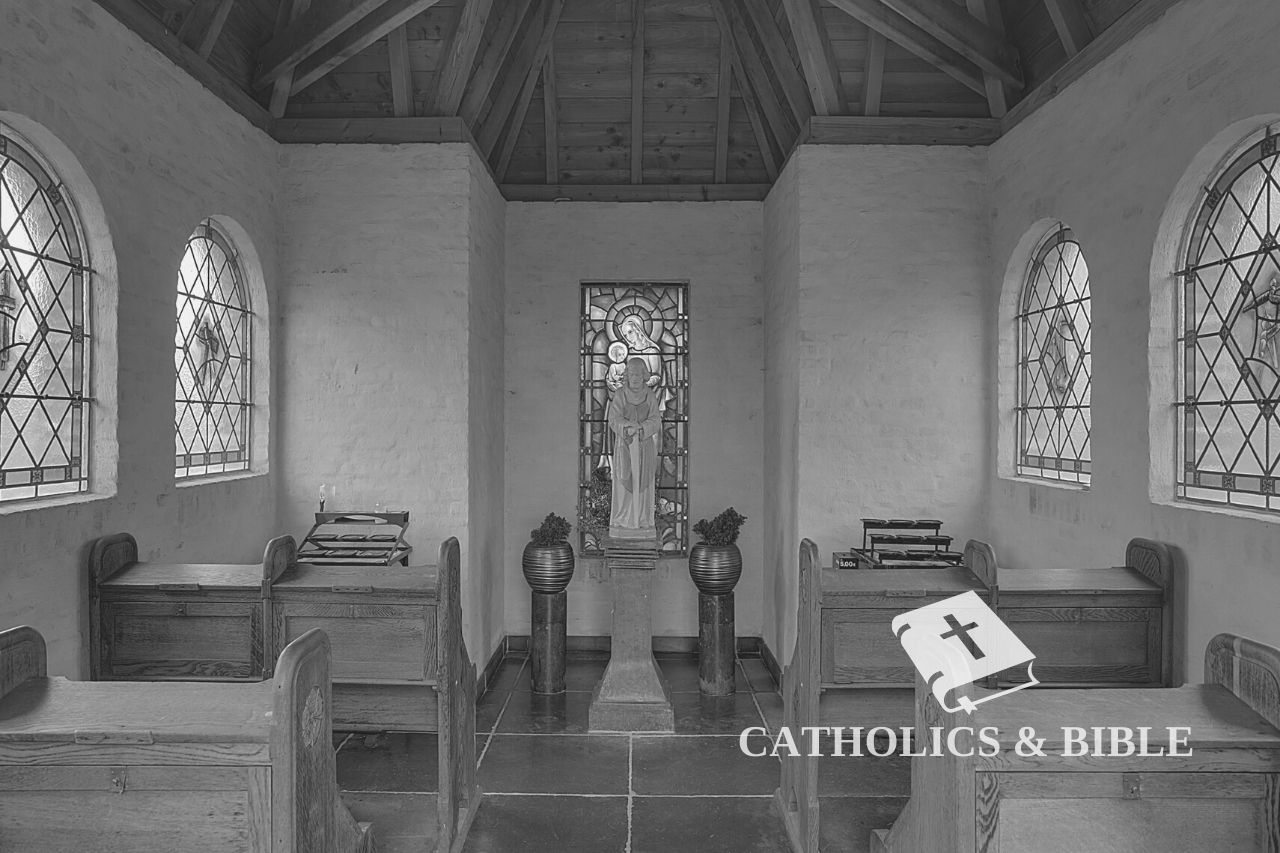While there are Catholic Churches with names like Immaculate and Transfiguration, the vast majority of Catholic Churches are named after a saint.
There are probably several St. John and St. Peter Churches in your city or state. So why are Catholic churches named after saints and why are saints so important in the Catholic Church?
What You'll Learn Today
Why Are Saints Important In The Catholic Church?

It’s not just Churches that we name after saints.
We also have feast days dedicated to various saints and we have saints as patrons of places, activities, crafts and so on.
Most importantly, saints feature heavily in Catholic Prayers.
So much so that there’s a misconception usually by non-Catholics that Catholics worship saints, in contravention of the ten commandments.
But that’s not the case at all. Saints are intercessors for the faithful who are still on earth.
Because they are close to God and understand the suffering we go through, they are perfectly placed to intercede for us.
Here’s what the Catechism of the Catholic Church says.
CCC 956: Being more closely united to Christ, those who dwell in heaven fix the whole Church more firmly in holiness. . . . They do not cease to intercede with the Father for us…
While saints are faithful who have died and gone on to heaven, they are still part of the communion, together with the living faithful as well as those in purgatory.
So we still share a strong bond of love that not even death can break.
CCC 957: Exactly as Christian communion among our fellow pilgrims brings us closer to Christ, so our communion with the saints joins us to Christ, from whom as from its fountain and head issues all grace, and the life of the People of God itself.
Saints as a Sacramental
Another important role saints play in the Catholic Church is that they remind us to be steadfast in our faith.
Many of the venerated saints underwent great suffering and some are martyrs.
They are an encouragement to the rest of the faithful to hold fast to their faith and live a righteous life no matter the challenges.
Similar to other symbols and aids like the rosary, crucifix, statues, and holy water, saints act like sacramentals to help us draw closer to God.
This is directly connected to the naming of churches after saints. It’s a constant remembrance of the righteous life a saint led and an inspiration for us to imitate that saint.
It’s why many churches named after saints have an icon or icons of the saint inside the church. These artworks serve to give us hope and energize our faith.
Why Are Catholic Churches Named After Saints?
Considering how important saints are in the Catholic Church, it’s no wonder so many churches are named after them.
As we’ve just mentioned above, part of the reason for this is to inspire the faithful to live like a particular saint.
Some churches will just pick a saint that many local people admire and name the church after that saint.
There are also other reasons for naming Catholic Churches after saints.
- Early Catholic Churches were often built on top or near where the remains or relics of saints were buried. Thus, they got named after that particular saint. A good example is St. Peter’s Basilica in Rome, Italy.
- Other churches are named after a saint who is highly venerated in a certain location, maybe because they lived there, did missionary work there, or they died there.
- Some churches are linked to a particular saint either because of the demographic they serve, their location or their causes. So they get named after a certain patron saint.
- In some cases, churches are named after a specific saint because they are dedicated on the same day as the celebration of that saint.
Another big reason why Catholic Churches are named after saints is that it’s part of the naming rules in the Code of Canon Law.
Catholic Churches have to be named after a canonized saint, the Holy Spirit, the Trinity, Christ, an angel, Mary, or a Blessed.
Most churches opt to go with the saint option.
Why Are Catholic Churches Called All Saints?

Some Catholic Churches choose the name ‘All Saints’ instead of a particular saint. For example, the All Saints Catholic Church in Fort Worth, Texas.
This is likely in reference to the All Saints’ Day or the Feast of All Saints. This is a day that celebrates all saints, whether they are known or unknown.
Catholic Churches that are named ‘All Saints’ are likely named so in remembrance of all the saints who’ve lived before us.
Are There Non-Catholic Churches Named After Saints?
Naming churches after saints is not a tradition unique to the Roman Catholic Church.
Many Eastern Orthodox Churches are also named after saints. And even among protestant denominations, there are churches that are named after saints.
Not all these churches canonize saints, the same way the Catholic Church does. Instead, they use names of well known figures and apostles from the Bible like St. Peter, St. John or St. Stephen.
Some examples include St. John’s Lutheran Church, St. Alban’s Anglican Cathedral (in Florida), and St. Nicholas Anglican Church.
But a majority of protestant churches are not named after saints.
Are All Catholic Churches Named After Saints?
Seeing how common churches named after a saint are, it’s reasonable to assume all Catholic Churches are named after saints.
But that’s not the case. Remember those rules for naming churches in the Code of Canon Law?
It provides for other naming options in addition to saints. For instance, churches can be named after the Holy Spirit.
Indeed, there are many Holy Spirit Catholic Churches including one in Atlanta, Georgia.
You’ll also come across churches named after Christ (e.g. Christ The King, Christ the Light etc.), others named after Mary (e.g. Mary Pure Heart, Immaculate Heart of Mary etc.) and others named after the Trinity (e.g. Blessed Trinity, Holy Trinity etc.).